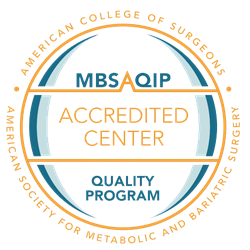When Should I Be Worried? FAQ with Dr. Steven Simper
By: Dr. Steven C. Simper, MD, FACS

Learn more about weight loss surgery at Rocky Mountain Associated Physicians www.RMAP.com (801) 268-3800
Question: My abdomen hurts. When should I worry?
Dr. Simper’s Answer: All of us get stomach aches from time to time. The question is when does stomach pain represent something serious? This can be an even more pressing question after having abdominal surgery. Scar tissue or altered anatomy from the surgery can predispose a person to bowel obstruction even years after surgery.
Perhaps you are like many bariatric surgery patients who have read about such problems on the internet, or in the news. Perhaps you have heard about these types of problems at your support group or read about the signs and symptoms to look for in RMAP’s literature. While I don’t think bariatric patients are any more likely to develop bowl obstructions than, for example, a patient who has had a hysterectomy, they still are at risk and often very aware of that risk. What follows are some basic warning signs to look for and general principles that surgeons use to try diagnosing abdominal pain.
Let’s look first at common causes of abdominal pain. The most common is gastroenteritis, or the “stomach flu.” Flu, however, is a misnomer because gastroenteritis is not the flu. It is most often caused by a virus. However, the cause can also be bacterial, such as salmonella or shigella. It usually lasts twenty-four to forty-eight hours and is associated with severe, intermittent abdominal cramping, nausea, vomiting, and diarrhea. Frequently you will feel relatively well for a period of time, followed by a period where you wonder whether you are going to live or die. Most of us have been there: confused whether we should stick our head in the toilet to vomit or sit on it—often we try to do both! Surprisingly, even though a person with gastroenteritis is very sick, most of us recognize it instinctively for what it is and don’t seek medical care unless it persist or unless dehydration sets in. Of course, in these cases it is wisest to seek help at the nearest emergency room.
Irritable bowel syndrome (IBS), also called “functional bowel,” is difficult for doctors and patient alike. This problem is often intermittent and lifelong; therefore, a patient having an episode likely knows what it is, since most episodes are similar. Symptoms are frequent and severe abdominal cramping, bloating, and diarrhea or constipation sometimes alternating and sometimes lasting for hours. IBS is often brought on by emotional stress but not necessarily. It is difficult to diagnose and treat and can mimic other problems such as lactose intolerance, or sprue (gluten intolerance). In Gastric Bypass patients, IBS can mimic the “dumping syndrome.” Most patients with irritable bowel can recognize “their symptoms” and take measures to either prevent or to relieve their discomfort, such as taking their previously prescribed medication, avoiding certain foods, eating a high fiber diet and so forth. However, if you have not had these symptoms before and are now having intermittent pain that is quite severe either daily, weekly, or even monthly, it is important that you contact your bariatric surgeon. These symptoms can be a sign of a partial bowl obstruction.
More serious causes of abdominal pain are things like appendicitis, gallbladder attacks, and as we have already mentioned, bowel obstructions. These are much more serious, but can still be difficult to differentiate from the less serious and more common problems mentioned earlier.
There are several rules, however, that may be able to help you. First, pain that is continuous and lasts six hours or longer is more likely to be serious. Second, you should never ignore severe pain, pain that is “worse than anything” you have experienced before. Finally, we want you to be concerned about any new type of pain, pain unlike any other pain you have experienced before. None of these scenarios absolutely indicates a life-threatening problem, but they increase the chance that something serious is going on in your abdomen. You should seek expert care and evaluation.
I believe that a patient’s own sense of well-being is a very good indicator. We all have aches and pains that we instinctively know are probably not serious. We know, or sense, that we don’t need to seek care for these kinds of aches and pains. But when a serious problem does arise, we often find ourselves saying “this is different, this may be more serious.” In these situations, it is best to follow your own sense or feeling that something is amiss.
Just a last word about small bowel obstructions. Sometimes these can be hard to diagnose, particularly if they are intermittent or partial. If you have a new onset of intermittent abdominal pain and your doctors are not sure what is causing it, please contact your bariatric surgeon. We may be able to help. Remember, it is always a good idea to keep your bariatric surgeon involved with your care. We bring a different perspective and years of experience in dealing with bariatric surgery problems to the table to help solve your problems.
Remember: eat right, exercise, take your vitamins and minerals, and most of all—enjoy life!
About the Author:
 Dr. Steven Simper, MD, FACS, performed his first bariatric procedure in 1984 at Wilford Hall Medical Center in Texas. Currently, he performs laparoscopic gastric bypass, sleeve gastrectomy, duodenal switch, and revisional surgery. In addition to general surgery procedures.
Dr. Steven Simper, MD, FACS, performed his first bariatric procedure in 1984 at Wilford Hall Medical Center in Texas. Currently, he performs laparoscopic gastric bypass, sleeve gastrectomy, duodenal switch, and revisional surgery. In addition to general surgery procedures.
Links to related articles:
Following Up After Bariatric Surgery
Bodily Functions That Can Happen After Weight Loss Surgery
Various Complications After Weight Loss Surgery
www.RMAP.com
Rocky Mountain Associated Physicians
801-268-3800
1160 East 3900 South, Suite 4100
SLC, UT 84124













 Address: 1521 East 3900 South STE 100
Address: 1521 East 3900 South STE 100 Office: +
Office: +  Fax number (801) 268-3997
Fax number (801) 268-3997 Email: info@rmapinc.com
Email: info@rmapinc.com



